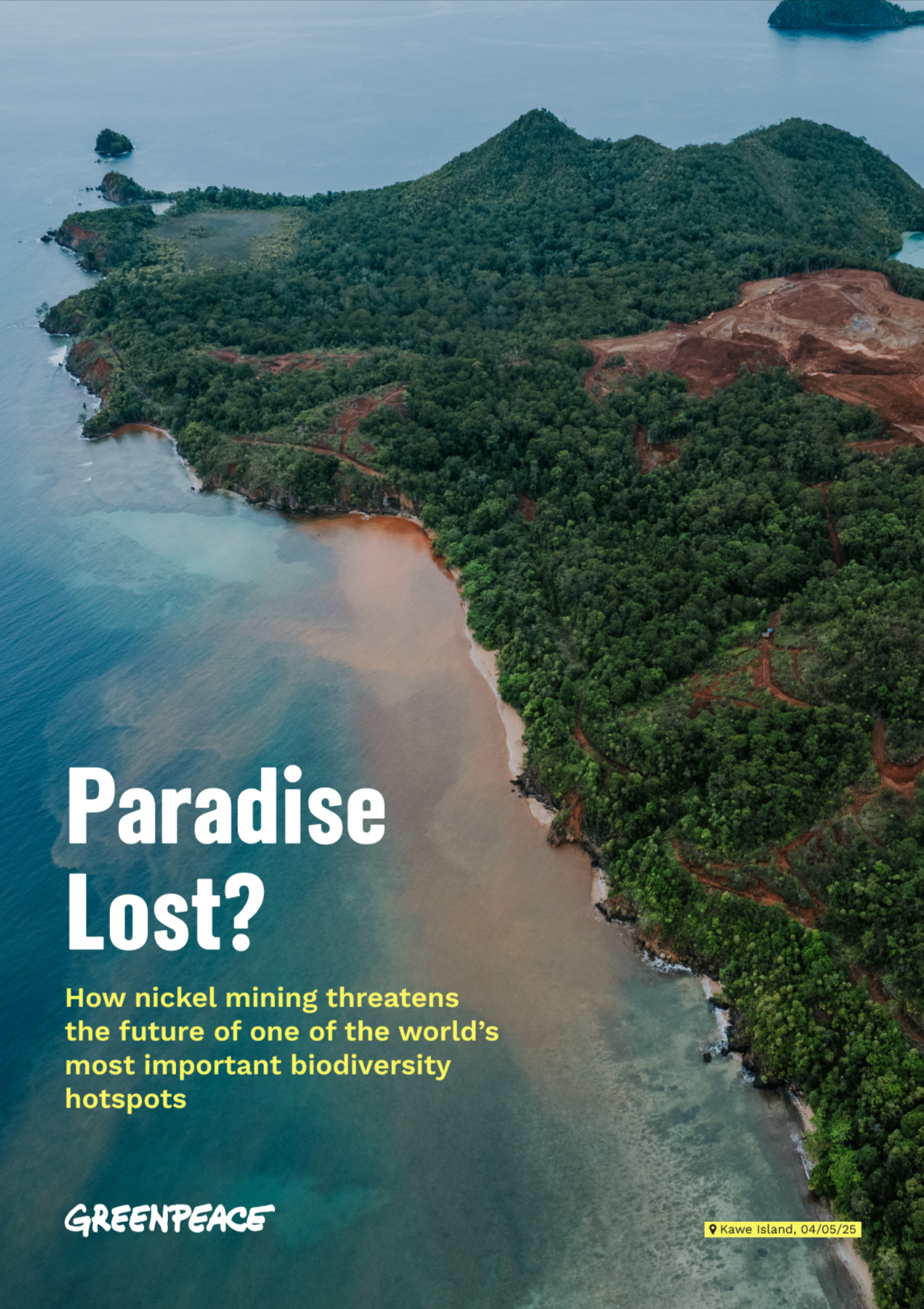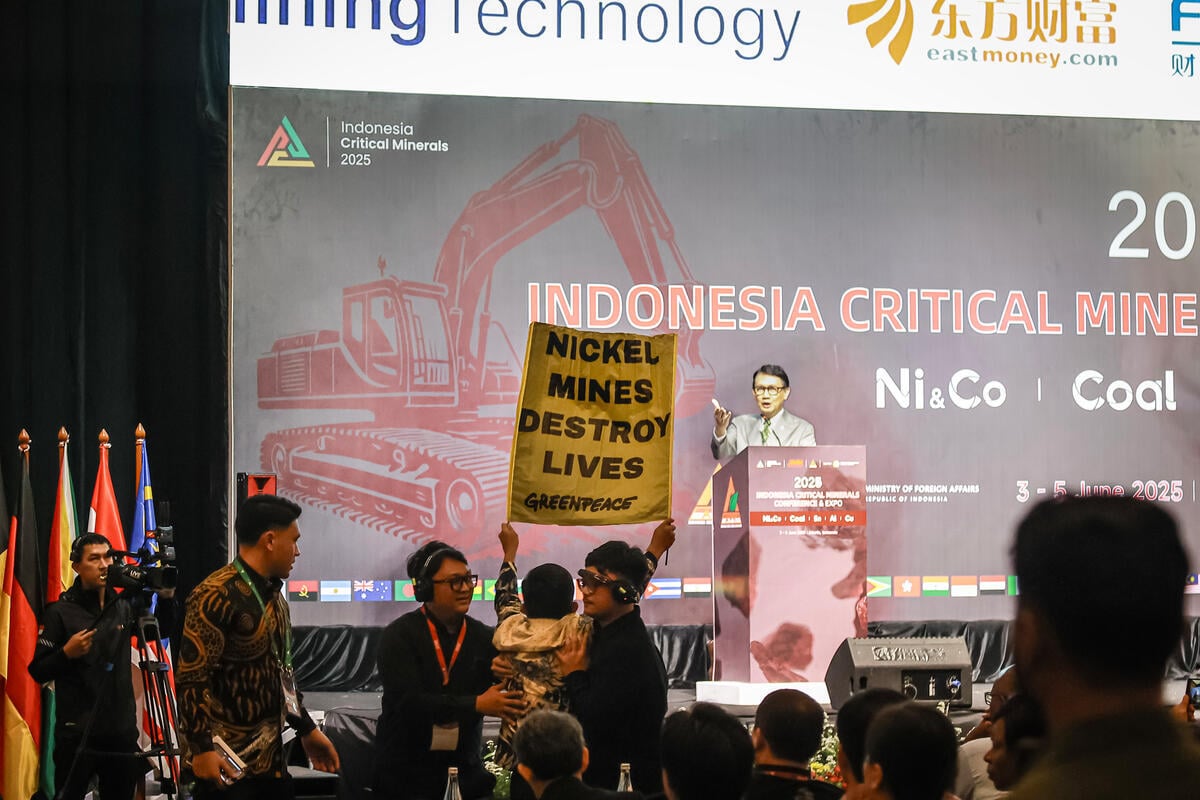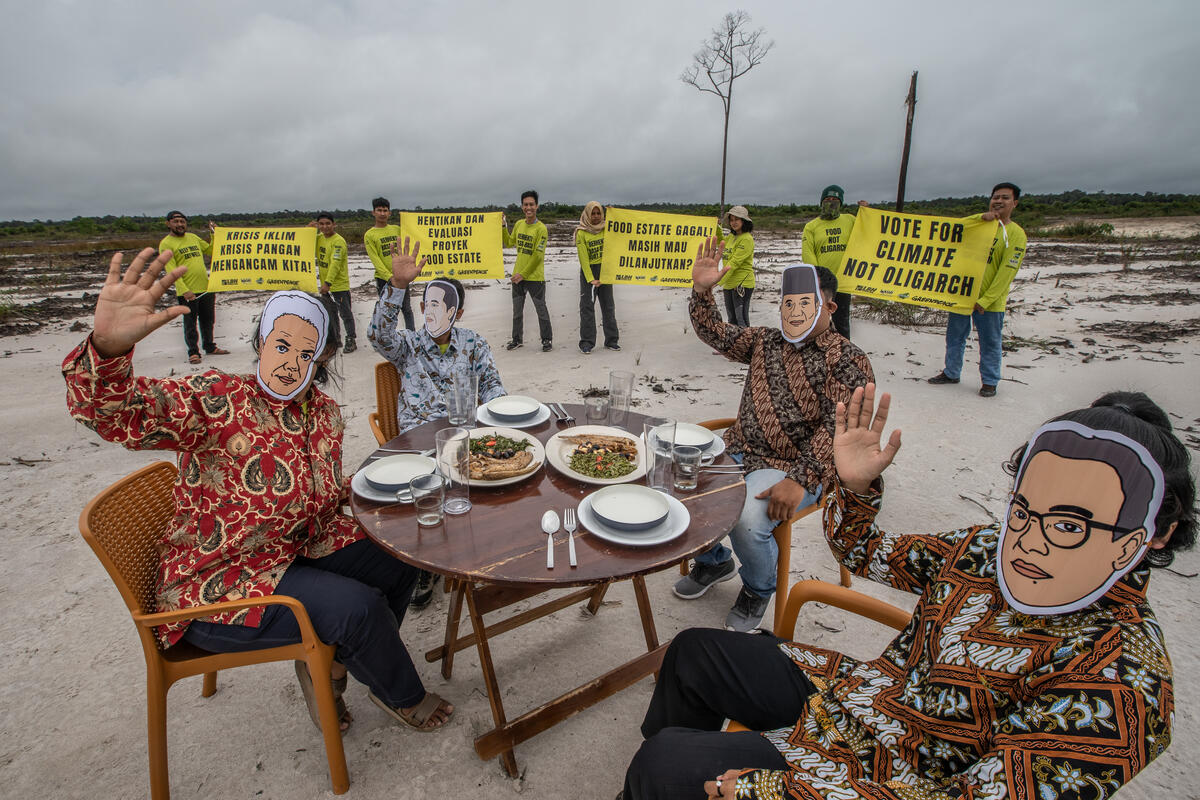The struggle of the Awyu tribal community to safeguard their ancestral forests has encountered yet another setback – thrown up by an external legal system totally alien to their own Indigenous law. The Manado State Administrative High Court (PTTUN) rejected an appeal relating to the environmental and climate change lawsuit filed by Hendrikus Woro – an environmental activist from the Awyu Indigenous People of Tanah Papua. This disappointing decision, dated March 1, 2024 adds to the string of injustices for the Awyu tribal community, following the earlier rejection of the same lawsuit by the Jayapura State Administrative Court (PTUN).
Undeterred by these successive legal setbacks, Hendrikus Woro remains steadfast in his pursuit of justice to protect the Indigenous lands of his community from encroachment by the palm oil industry. Today, Hendrikus and his legal team submitted a Cassation appeal to the Supreme Court. A number of young Indigenous people also held a peaceful demonstration at the Jayapura PTUN to accompany the submission of the cassation appeal.
“Cassation represents the next battlefield upon which the Awyu tribal community will defend their customary forest. The Supreme Court must look at this lawsuit by referring to the guidelines for adjudicating environmental cases that they created themselves, so that they can provide a fair decision for the Awyu indigenous people,” said Tigor Hutapea, a member of the Awyu tribe’s legal team from Bentala Rakyat Heritage Foundation.
Previously, a panel of judges in Manado rejected the Awyu’s lawsuit, arguing that it had been lodged more than 90 days after an environmental permit allowing PT Indo Asiana Lestari to establish a palm oil plantation on the Awyu’s forest land was issued by a Papua Provincial government office. Hendrikus Woro, whose village is located in a remote area of south-eastern Papua more than two day’s rough overland travel from the province’s administrative capital, was initially unaware of the decision affecting his family’s ancestral Indigenous land, but subsequently registered a lawsuit at the Jayapura administrative court on March 13 2023.
In throwing out the community’s case, the Manado court appears to have erred by not taking into account Supreme Court rules that the case filing deadline count should begin “from the time that an actual or potential environmental impact becomes known by a complainant” [1] – which in the Awyu’s case, was not immediate, as they were not initially informed their land had been signed away by the provincial government. Not only that, but the Manado court’s harsh decision is incompatible with Supreme Court norms on natural justice, not least because the case had already been accepted as being lodged within the appeal period by the lower court in Jayapura.
“If judges truly possess an environmental perspective, they should abide by provisions that best open opportunities for access to environmental justice. The [Manado] judges’ choice to use the harshest provisions has closed down the opportunity for environmental justice and shows the judicial position lacks an environmental protection perspective,” said Sekar Banjaran Aji, a member of the Awyu tribe’s legal team from Greenpeace Indonesia.
Not one of the members of the judicial panel which threw out the Awyu’s case in Manado, has professional certification in adjudicating environmental cases. This violates Supreme Court guidelines on handling environmental cases. [2] “This means that there is a formal flaw in the handling of Hendrikus Woro’s lawsuit, because at least one of the three judges should have environmental judge certification,” said Emanuel Gobay, a member of the Awyu tribe’s legal team from the Papuan Legal Aid Institute.
[Photos available here.]
Notes to editors
[1] Pasal 18 Ayat 2 Peraturan Mahkamah Agung Nomor 1 Tahun 2023 tentang Pedoman Mengadili Perkara Lingkungan Hidup
[2] Surat Keputusan Ketua Mahkamah Agung Nomor 36 Tahun 2013 tentang Pemberlakuan Pedoman Penanganan Perkara Lingkungan Hidup
Media contact
Igor O’Neill, Greenpeace Indonesia, [email protected] +61-414-288-424



